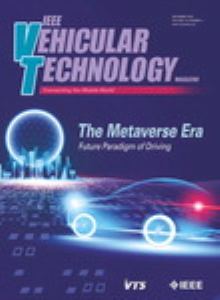A Multi-Mode Coordinated Control Framework of Vehicular Hybrid Power System Based on Energy Storage System
IF 7.1
2区 计算机科学
Q1 ENGINEERING, ELECTRICAL & ELECTRONIC
引用次数: 0
Abstract
The operational management of diesel power packs is crucial for their fuel consumption, stability, and dynamic response. Vehicular hybrid power systems (VHPSs) can enhance these vehicle attributes. This study introduces a coordinated control framework to optimize the operation of VHPSs' diesel power pack in different modes. The first mode focuses on optimizing fuel consumption and dynamic response during the starting process using a reverse starting control strategy. The second mode targets fuel consumption and system stability during travel, proposing a two-layer coordinated control (TLCC) strategy that combines energy management and speed control. Through hardware in the loop simulation, the reverse starting control strategy reduces fuel consumption by 21.7% and starting time by 37.1% compared to conventional methods. Additionally, the proposed TLCC strategy outperforms the conventional rule-based (RB) strategy, achieving fuel consumption savings of 60.5%, 26.8%, and 21.9% across the typical three vehicular stages.基于储能系统的车载混合动力系统多模式协调控制框架
柴油发电机组的运行管理对其燃料消耗、稳定性和动态响应至关重要。汽车混合动力系统(vhps)可以增强车辆的这些属性。本文介绍了一种协调控制框架,以优化vhps柴油动力组在不同模式下的运行。第一种模式的重点是在启动过程中使用反向启动控制策略优化燃油消耗和动态响应。第二种模式以行驶过程中的燃油消耗和系统稳定性为目标,提出了一种结合能量管理和速度控制的双层协调控制(TLCC)策略。通过硬件在环仿真,与传统方法相比,反向起动控制策略油耗降低21.7%,起动时间降低37.1%。此外,提出的TLCC策略优于传统的基于规则(RB)策略,在典型的三个车辆阶段中实现了60.5%,26.8%和21.9%的燃油消耗节约。
本文章由计算机程序翻译,如有差异,请以英文原文为准。
求助全文
约1分钟内获得全文
求助全文
来源期刊
CiteScore
6.00
自引率
8.80%
发文量
1245
审稿时长
6.3 months
期刊介绍:
The scope of the Transactions is threefold (which was approved by the IEEE Periodicals Committee in 1967) and is published on the journal website as follows: Communications: The use of mobile radio on land, sea, and air, including cellular radio, two-way radio, and one-way radio, with applications to dispatch and control vehicles, mobile radiotelephone, radio paging, and status monitoring and reporting. Related areas include spectrum usage, component radio equipment such as cavities and antennas, compute control for radio systems, digital modulation and transmission techniques, mobile radio circuit design, radio propagation for vehicular communications, effects of ignition noise and radio frequency interference, and consideration of the vehicle as part of the radio operating environment. Transportation Systems: The use of electronic technology for the control of ground transportation systems including, but not limited to, traffic aid systems; traffic control systems; automatic vehicle identification, location, and monitoring systems; automated transport systems, with single and multiple vehicle control; and moving walkways or people-movers. Vehicular Electronics: The use of electronic or electrical components and systems for control, propulsion, or auxiliary functions, including but not limited to, electronic controls for engineer, drive train, convenience, safety, and other vehicle systems; sensors, actuators, and microprocessors for onboard use; electronic fuel control systems; vehicle electrical components and systems collision avoidance systems; electromagnetic compatibility in the vehicle environment; and electric vehicles and controls.

 求助内容:
求助内容: 应助结果提醒方式:
应助结果提醒方式:


